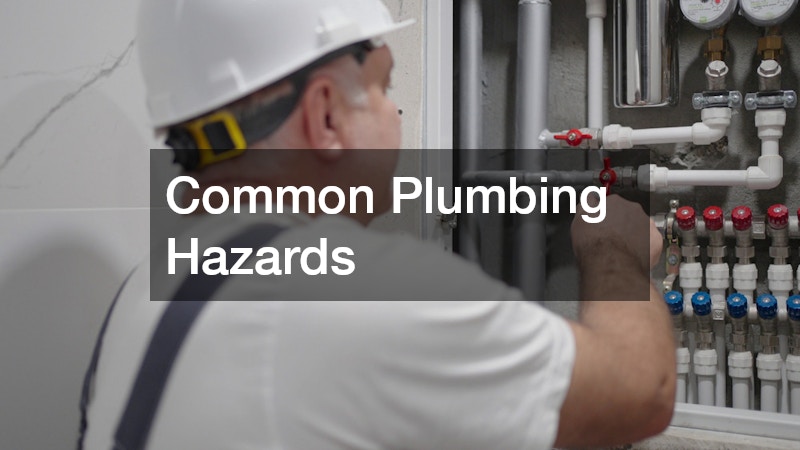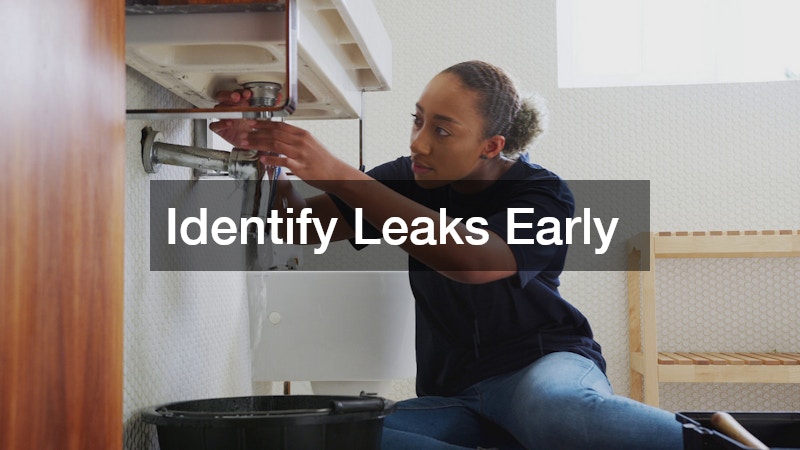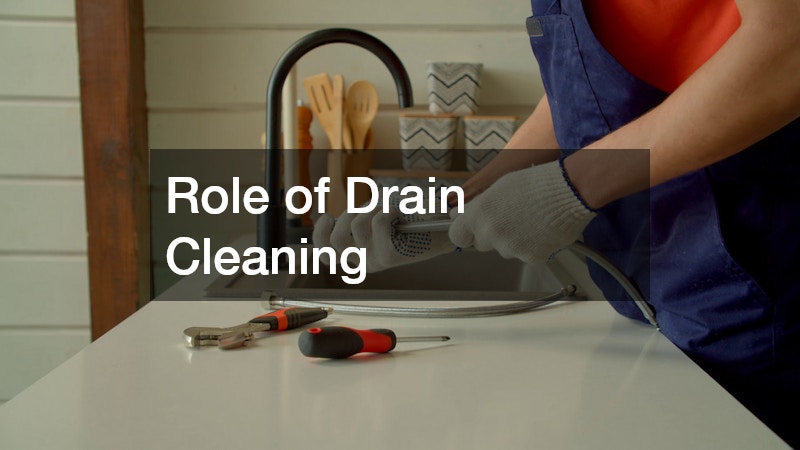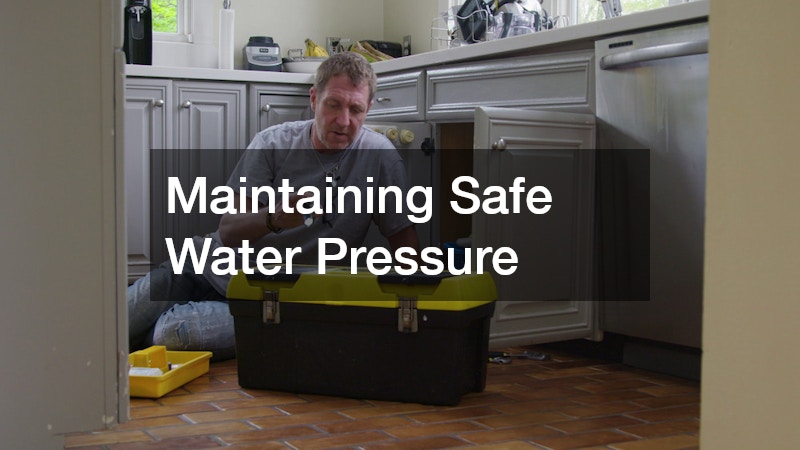When it comes to maintaining a healthy home, plumbing plays a crucial role in ensuring the safety and comfort of your family. Understanding residential plumbing health and safety is essential to prevent accidents, water damage, and costly repairs. From regular maintenance to knowing when to call a professional, this guide covers key tips and practices every homeowner should be aware of. By following proper plumbing safety protocols, you can protect your home, safeguard your family’s health, and avoid unexpected plumbing emergencies. Let’s dive into the vital aspects of plumbing health and safety that you need to know.

Common Plumbing Hazards in Residential Homes
One of the most overlooked hazards in residential plumbing is the potential for leaks, which can cause extensive water damage if not addressed promptly. Enlisting a professional plumber is essential in identifying and repairing these leaks effectively. In addition, faulty installations by inexperienced plumbers can contribute to recurring plumbing issues that might go unnoticed until significant damage occurs.
An often underestimated hazard is the presence of mold and mildew due to lingering moisture from leaks or condensation. Without regular intervention from plumbing inspections, these issues can persist and compromise plumbing health and safety of the household. Ensuring that all plumbing fixtures and piping are properly sealed and ventilated is critical to preventing mold growth.
Lead pipes and outdated plumbing systems present another significant hazard in many older homes. The toxicity of lead in drinking water is a serious health concern, necessitating prompt action from local plumbing contractors. Replacing these hazardous systems with modern, safe materials ensures the long-term wellbeing of residents, highlighting the need for regular plumbing evaluations.
Importance of Regular Plumbing Inspections
Investing in regular plumbing inspections can save homeowners from costly repairs and unforeseen emergencies. By engaging skilled residential plumbers, homeowners can maintain a comprehensive understanding of their plumbing system’s condition. Early detection and maintenance can prevent the amplification of issues in their systems.
Regular inspections by professional plumbers can identify subtle signs of wear and tear before they evolve into significant issues. These plumbing inspections often include checking water pressure, inspecting pipes for leaks, and assessing the efficiency of water heaters and sump pumps. These preventative services can be scheduled annually to ensure that the plumbing system remains robust and safe.
Homeowners can also benefit from an educational aspect during these inspections, as plumbers often provide advice on maintaining systems between professional visits. This collaborative effort between homeowners and plumbing suppliers supports a proactive stance in residential plumbing care. By adhering to regular plumbing inspections, families can keep their homes safe from the potential hazards associated with plumbing health and safety.
Preventing Water Damage Through Proper Plumbing Maintenance
Effective plumbing maintenance is crucial in preventing water damage, a common issue that can lead to costly repairs and health risks. Engaging experienced plumbers to conduct routine checks of all plumbing components is key to avoiding such damage. Ensuring that pipes, water heaters, and drains are in optimal condition significantly reduces the likelihood of issues developing in these systems.
Plumbing maintenance should encompass the inspection and maintenance of water heaters, as these units are pivotal in ensuring a household’s access to hot water. Water heater installers are essential for ensuring that installations meet safety standards, reducing the chances of leaks and inefficient performance. Regular servicing by a water heater expert guarantees that the appliance remains efficient and minimizes the possibility of leaks.
Certain preventive measures, such as installing water softeners or sump pumps, can further mitigate the risk of water damage. These devices, alongside the expertise of a drain cleaning plumber, can alleviate the burden on the plumbing system by preventing clogs and managing excess water. By adopting these maintenance practices, homeowners can ensure that their plumbing health and safety remains reliable.

How to Identify Leaks Early and Prevent Mold Growth
Detecting leaks early is vital for plumbing health and safety and in preventing the potential for water damage and mold growth in residential plumbing systems. Homeowners should regularly inspect visible pipes and fixtures, keeping an eye out for signs of leaks such as discoloration, water spots, or unusual odors. By engaging a residential plumber, even hidden leaks behind walls or under floors can be identified through comprehensive inspections.
Water heater installers can also play a crucial role in preventing leaks from becoming significant issues. During installations or routine maintenance, these experts ensure that connections are secure and functioning optimally. A well-installed unit minimizes the risk of leaks and water damage, and the expertise of plumbers can guide homeowners in selecting appropriate solutions.
Preventative measures such as proper ventilation and moisture control are fundamental in preventing mold growth. Utilizing the services of a local plumbing contractor can further educate homeowners on managing humidity levels and preventing mold-friendly environments. With regular checks and maintenance, homeowners can mitigate the risks posed by toxic mold.
Safe Plumbing Practices for DIY Homeowners
While DIY plumbing can be an attractive option for homeowners seeking cost-effective solutions, it’s crucial to adhere to safe practice standards. Equipping oneself with knowledge about basic plumbing maintenance is essential, and plumbers recommend that homeowners familiarize themselves with their home’s plumbing layout and key shut-off valves. Collaborating with plumbing suppliers ensures that homeowners have access to high-quality materials and tools.
DIY homeowners should avoid tackling complex issues, such as water heater installations or sewer line repairs, without professional guidance. Instead, minor plumbing tasks like fixing dripping faucets, unclogging drains, or inspecting visible pipes for leaks can be safely managed with minimal risk. By conducting proper research and following expert advice, homeowners can keep their plumbing systems functional and safe without compromising their plumbing health and safety.
In addition to adhering to best practices, DIY enthusiasts should prioritize safety by utilizing the correct tools and protective equipment. Disposable gloves, safety goggles, and the appropriate tools from reputable plumbing suppliers can prevent accidents during minor repairs. By practicing these measures, homeowners can safely contribute to maintaining their home’s plumbing health and safety, and reduce the need for emergency services.
Understanding Backflow Prevention in Residential Plumbing
Backflow prevention is a critical aspect of maintaining safe and sanitary residential plumbing systems. Backflow occurs when water reverses direction in plumbing pipes, potentially introducing contaminants into clean water supplies. Implementing effective backflow prevention measures through the assistance of certified plumbers ensures that residents are protected from potential health hazards associated with a toxic water supply.
Sump pumps, often installed by local plumbing contractors, play an important role in backflow prevention by managing excess water around a property’s foundation. Regular maintenance and testing of these devices are essential to ensure their efficacy in safeguarding against water intrusion. In communities with strict plumbing codes, compliance with backflow prevention standards is mandatory to ensure public plumbing health and safety.
Homeowners can collaborate with plumbing suppliers to acquire backflow prevention devices tailored to their specific plumbing systems. Inspecting and maintaining these devices periodically reduces the likelihood of contamination and serves as a safeguard against waterborne illnesses. Proper education and installation by qualified professionals are essential to protecting residential water sources from the risks associated with backflow.

The Role of Drain Cleaning in Plumbing Health and Safety
Drain cleaning is vital for maintaining a functional and safe plumbing system, preventing the buildup of debris that can lead to clogs and sewer backups. Engaging a skilled drain cleaning plumber ensures that blockages are efficiently addressed and remains free-flowing. Regular drain cleaning is also a preventative measure that can mitigate the risk of damage to pipes and fixtures.
Neglected drains can lead to stagnant water, becoming a breeding ground for bacteria and mold, which pose serious health risks to residents. By scheduling routine drain maintenance, homeowners can reduce the occurrence of such health hazards and maintain their plumbing system’s longevity. Professional plumbers can recommend suitable cleaning agents and tools that are both effective and gentle on plumbing materials.
Incorporating regular drain cleaning into household maintenance routines can also prevent foul odors and unsanitary conditions. Collaborating with a drain cleaning plumber to address persistent clogs can ensure that plumbing systems function optimally. By adopting a proactive approach, homeowners safeguard their infrastructure against potential long-term issues and ensure continued plumbing efficiency.
Plumbing Code Compliance for Safe Home Installations
Compliance with plumbing codes is an essential consideration for homeowners and professionals alike, ensuring that installations meet safety and efficiency standards. Plumbing codes are designed to protect residents by minimizing risks associated with improper installations, including leaks, contamination, and system failures. Consulting with a water heater expert and certified plumbers guarantees that the latest code requirements are met during installations.
Regardless of the project size, adherence to these regulations ensures the safe operation of plumbing systems and protects home value. Homeowners seeking to upgrade or install new plumbing systems should engage residential plumbers knowledgeable in local regulations. Understanding the nuances of plumbing code compliance helps to prevent future issues associated with outdated or unsafe installations.
Moreover, ensuring that all plumbing work adheres to these codes can limit legal liabilities and potential fines. Working closely with reliable water heater installers and local plumbing contractors makes compliance straightforward and worry-free. Investing in code-compliant installations and maintenance translates to peace of mind and the continued safety of the household.
The Dangers of Clogged Pipes and How to Avoid Them
Clogged pipes can lead to dire consequences, including backups, leaks, and property damage, highlighting the importance of regular maintenance and inspections. Homeowners can prevent clogs by avoiding the introduction of foreign objects and materials, such as grease, hair, and other debris, into drains. Regular assistance from a residential plumber ensures that the system remains clear is addressed without delay.
Severe clogs in pipes can exacerbate structural issues within plumbing systems, potentially leading to costly repairs. By scheduling routine checks with a plumber, homeowners can identify potential problems and maintain system integrity. Early intervention and regular cleaning contribute significantly to minimizing risks associated with pipe blockages.
In addition to professional assistance, homeowners can adopt preventative measures such as installing drain guards and utilizing approved cleaning agents. Collaborating with plumbing suppliers to access effective clog prevention tools further enhances these efforts. A comprehensive approach encompassing both professional services and homeowner vigilance is key to preventing the issues associated with clogged pipes.

Best Practices for Maintaining Safe Water Pressure
Maintaining safe water pressure is critical to the proper functioning of a residential plumbing system, as excessively high or low pressure can detract from system performance. Local plumbing contractors can assist homeowners in regulating pressure through the installation of pressure-reducing valves and regular inspections. Balanced water pressure not only ensures effective system operation but also mitigates the risk of leaks or damage to fixtures.
Sudden fluctuations in pressure can indicate underlying issues that require the expertise of skilled plumbers. These professionals utilize modern diagnostic tools to quickly identify causes and recommend appropriate solutions. Routine maintenance conducted by residential plumbers serves as a preventive measure, protecting the system from overexertion and preserving its lifespan.
Homeowners can contribute to maintaining optimal water pressure by monitoring usage patterns and addressing any significant changes promptly. Educating family members and performing periodic at-home checks are simple practices that support long-term plumbing health and safety. Working alongside plumbing experts ensures a comprehensive approach to system management and safety, securing a reliable and efficient water supply for the household.
Emergency Plumbing Safety Tips Every Homeowner Should Know
Emergency plumbing issues can happen unexpectedly, and knowing how to handle them can prevent costly damage and ensure safety. First, always know where your main water shut-off valve is located; turning it off quickly can stop flooding and water damage. If you experience a burst pipe, avoid using electrical appliances near water. For clogged drains, never use harsh chemicals as they can damage pipes—opt for safer methods like a plunger or drain snake. Lastly, keep a list of reliable plumbers for emergencies and don’t hesitate to call a professional if the situation is beyond your control.
Maintaining residential plumbing health and safety is essential for protecting your home and family from potential hazards. Regular inspections, prompt repairs, and mindful usage of plumbing systems help prevent accidents, water damage, and costly repairs. By staying informed about common plumbing issues and prioritizing safety, you can ensure a secure and efficient plumbing system for years to come. Remember, when in doubt, always consult a licensed plumber to address complex issues. With the right precautions, you can enjoy a worry-free and safe plumbing experience in your home.